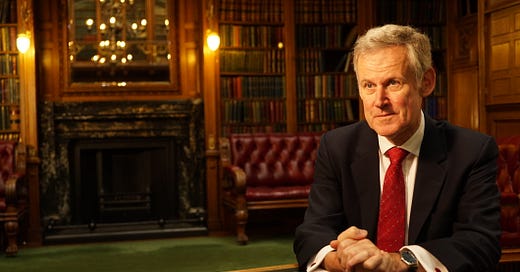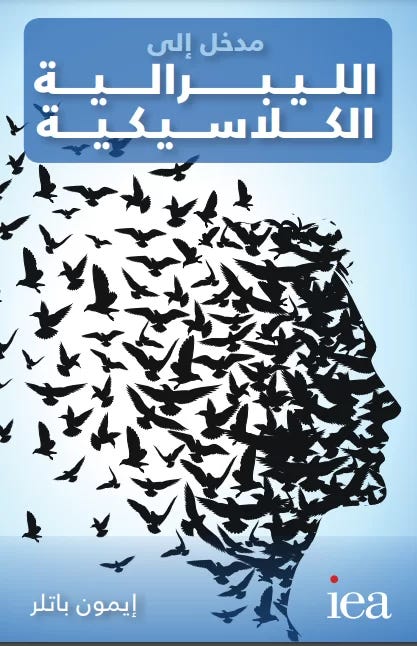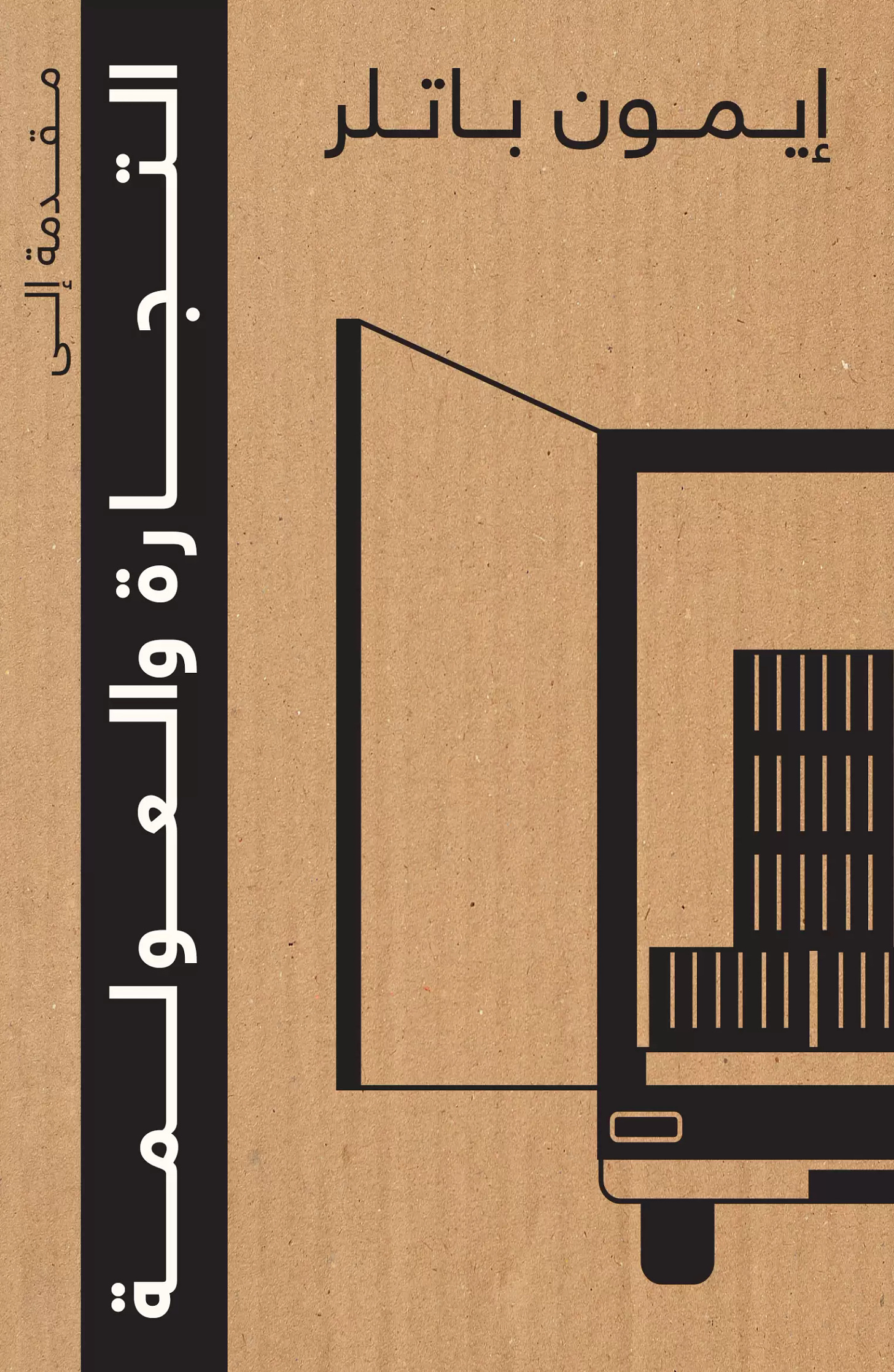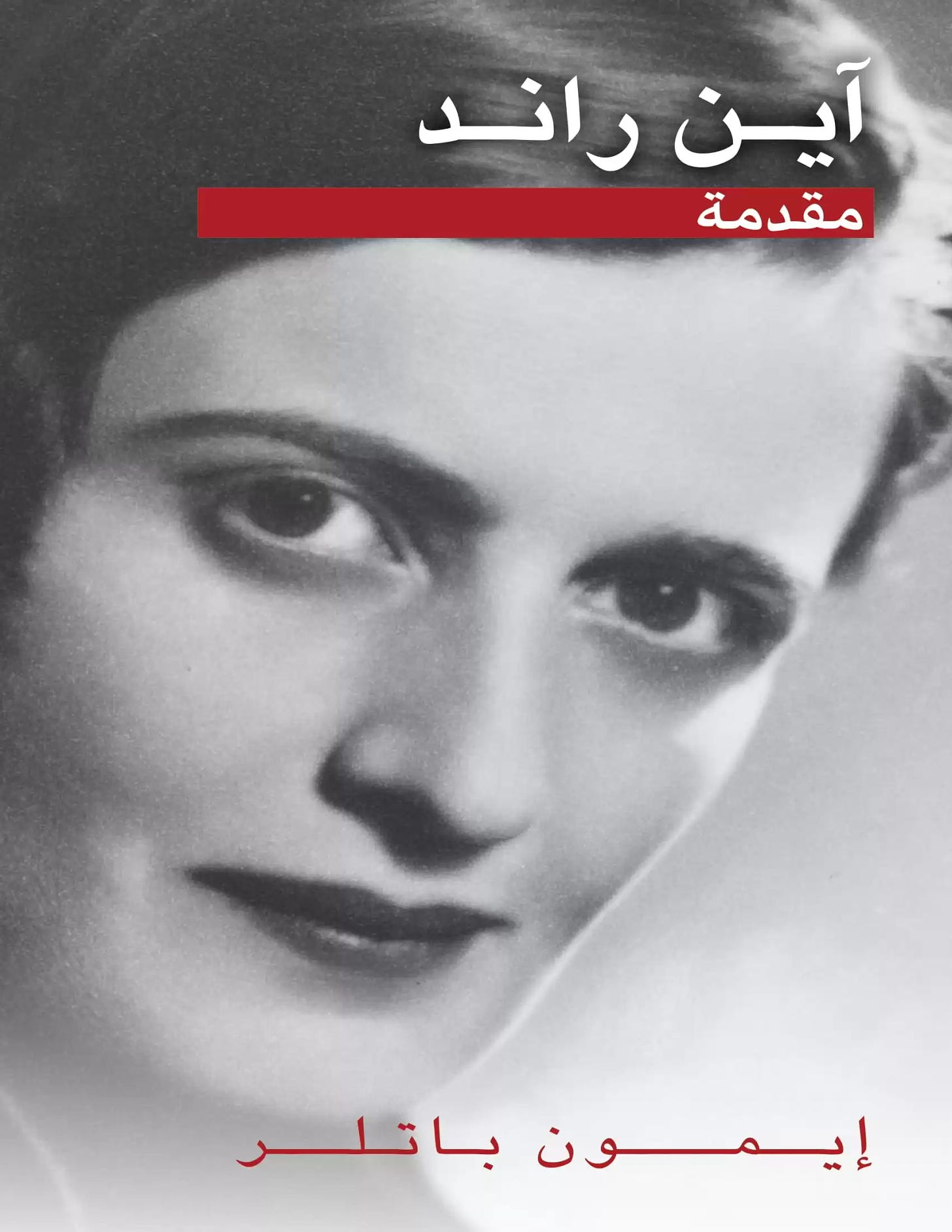Dr. Eamonn Butler on Economy and Ideology in the Middle East.
An IBB interview on libertarians, globalism, Ayn Rand, Ludwig Von Mises, liberalism, and the future of economics in the Middle East.
Dr. Butler is a British economist, author, and co-founder of the Adam Smith Institute, where he now serves as the institute's director. Our translators recently published four of his books, Ludwig Von Mises―A Primer, Classical Liberalism - A Primer, An Introduction to Trade and Globalisation, and Ayn Rand: An Introduction, into Arabic. These books offer a comprehensive introduction to many influential thinkers and schools of thought that guide our current systems of economics today. We hope these translations, and this interview, serve as a bedrock for our ambitious followers and friends across the MENA region who are seeking to improve their understanding and utilization of economics.
Ideas Beyond Borders: How did you initially become interested in libertarian / neoliberal economics?
Dr. Eamonn Butler: When I went to the University of St Andrews, in Scotland, I found that there was an active libertarian society. It was called the Conservative Association, and allied with the national Conservative party, but most of the active members were liberals (in the European sense) or libertarians. They introduced me to thinkers like Milton Friedman and F A Hayek. I read books like Capitalism and Freedom and The Constitution of Liberty and thought the ideas I found in them were really exciting. The liberal approach offered a new way to think about economic and social issues — ways that were not reflected in the mainstream debate.
Ideas Beyond Borders: Why did you write these books specifically?
Dr. Eamonn Butler: It began in 1983 at a meeting of the Carl Menger Society (an informal seminar series organised by the great think-tanker John Blundell). This particular meeting was arranged to discuss the work of F A Hayek. The Alternative Bookshop (a free-society bookshop than then existed in London) brought along some of Hayek’s books — The Road to Serfdom, Studies in Philosophy, Politics and Economics, The Constitution of Liberty and many more — which they laid out on a table. I could see many of the participants, particularly younger students and businesspeople, leafing through these volumes, without any clue where to start.
So I thought it would be useful to have a simple guide to Hayek’s work. And writing it would educate me on Hayek too, as I did not understand all of it myself. I found a publisher, and that was my first book, which I followed with one on Friedman and another on Ludwig von Mises. After that, John Blundell, who was then running the Institute of Economic Affairs, asked me to do the same on Adam Smith. Then I did more on other economics and other free-market subjects.
Now, I feel that writing easily accessible introductions to ideas from the free society and free economy is one of the best things I can do. We need to make these ideas accessible, without jargon, to a far wider public.
Ideas Beyond Borders: Do you believe the Middle East's problems are fundamentally economic?
Dr. Eamonn Butler: Sadly not — economic problems are easy to fix, at least in principle, by sound economic policy such as spending restraint, balancing the books, controlling the supply of money, keeping regulation to a minimum and encouraging entrepreneurship.
Like other places, however, the fundamental problem is the relative lack of liberal values — of tolerance, free speech, honest and representative government, government officials having to live by the same rules as everyone else, a belief in the primacy of the individual rather than the collective, property rights, and all the other things I described in the Classical Liberalism primer.
It is these values that are associated with economic growth; and I don’t think that growth is what produces liberal values (though it might help boost them) but rather that liberal values promote growth. England, the first major country to industrialise in modern times, adopted liberal values and institutions first, and then it became rich. Individual freedom is the basis of creativity, and creativity is a highly progressive force. Countries that cannot shake off authoritarian values and institutions, however, have not generally prospered.
Ideas Beyond Borders: Libertarianism tends to be a very WEIRD (Western, Educated, Industrialized, Rich, Democratic) way of thinking. What responses does your work tend to get from less WEIRD audiences?
Dr. Eamonn Butler: Unrestrained admiration, I hope! When I write these books, I am conscious not just of the Western audiences for my work, but of those for whom these ideas are new and perhaps rather challenging, given their countries’ history, culture and politics. All I can say is that these primers do seem in great demand. My Foundations of a Free Society, for example, has been translated into over 20 languages; and all the requests to translate them have come from local people and local groups. Most of the translations are not European-language translations, but in languages in the Middle East and North Africa, Sub-Saharan Africa, South Asia and East Asia. So I think that I am giving people in these places something to think about, and hopefully an introduction to these ideas that they can understand.
Ideas Beyond Borders: If you could ensure that one of Ayn Rand's core ideas was, if not accepted, then at least understood by the MENA region, which one would it be? What about Ludwig von Mises?
Dr. Eamonn Butler: In terms of Rand, it would be the idea of self-worth, self-esteem, and self-reliance. I think too many people in the Middle East and North Africa regard themselves as mere cogs in a social and political machine. They look up to others to decide how they should live. Like Rand, I would like to see people thinking of themselves as worthy and valuable individuals. That it is the interests of us all as individuals that we should value.
As for Mises, he has two key ideas. One is that socialism cannot work. The reason is that, if all goods are publicly owned and never traded, they have no market prices and it is impossible to judge their worth in any way. And it is impossible to balance that worth against the cost of producing them. That is why the Soviet Union was so clunkingly inefficient. They wasted resources producing things that the public did not want, and doing so very expensively.
His other relevant idea is how damaging government intervention can be. In Interventionism he points out that governments see — or think they see — some problem and then imagine that they have to intervene to do something about it. If the price of bread rises, for example, they imagine that they must institute price caps on the price of bread. But that makes things worse. People can no longer produce bread at the regulated prices, so they stop baking it. Then there are bread shortages. So governments then intervene in other ways in the attempt to clean up the mess that they themselves have created. And so it goes on. It’s better not to get started on that escalator at all.
Ideas Beyond Borders: What are the necessary preconditions for classic liberalism to flourish within a society? Do you think the MENA region has them?
Dr. Eamonn Butler: I would like to think so. Each country is different, but where there is a relatively prosperous middle class, I think there are pressures from the public for more say in how a country is run, and hopefully that will lead to a more extensive democracy. But democracy is difficult to get right. It depends on having institutions to protect minorities, and on a culture of tolerance. It is not about one group winning power and then having the right to impose its will on everyone else. Many of the advanced liberal democracies, like the US and UK, have gone through revolutions and civil wars on their way to working out what sort of democracy actually works.
Ideas Beyond Borders: Do you believe that adopting objectivism, as opposed to liberalism, could be better for the Middle East? Why or why not?
Dr. Eamonn Butler: I’m not an objectivist. I was raised in the Scottish empirical school. There might be a real world out there, but we don’t really know what it is or how it functions. So we make guesses and test them against what we perceive. If they are wrong, we have to abandon those theories and come up with other explanations. That is the scientific method.
Rand and Mises, by contrast, thought there was an objective world (in Rand’s case), and objective economic principles (Mises), which allowed you to deduce the whole of the physical and moral and political realities (Rand) and economic necessity (Mises). As an empiricist, though, I worry, like Hayek, about what we do when different people claim to deduce different realities — and even more disturbing, how the deductive method can explain things when the universe suddenly throws something new at us — as it does all the time.
Ideas Beyond Borders: Do you see the Middle East becoming more or less influenced by globalization in the coming years?
Dr. Eamonn Butler: There has obviously been a hiccup in international trade, caused by the belligerence of China in particular, since with globalisation so much production had been outsourced to the Far East and so many goods bought in the west were being manufactured in China — including the face masks and other protective equipment needed in the pandemic. So it is obviously a security risk, when a country like that can use trade as a political weapon. Russia’s war in Ukraine has had something of the same effect. Though it is a small economy in world terms, its control of oil and gas supplies to Europe is potentially a powerful political weapon. So there have been many demands for countries to become more self-reliant in production.
Nevertheless, I think the long-term future will be one of more and more trade. Not only is that efficient, not only does it give value to both sides, but it also increases understanding and cooperation between peoples. They don’t have to agree — I buy dates from producers in countries whose governments I do not approve of — but those individual producers and I can trade perfectly happily, whatever our politicians do.
Ideas Beyond Borders: Where do you think the most straightforward economic gains are to be found for the MENA region? What small, practical changes could lead to the most dramatic, immediate rewards?
Dr. Eamonn Butler: Again, each country is different, and you would be more expert in answering that question than would I. A key requirement, though, must be to sweep away many of the petty regulations that simply fuel official corruption. For example, a think-tank in Nepal, which has translated several of my books, told me that they had found 24 different licence requirements that you had to comply with simply to open a shop. Of course, nobody has all 24, as there is a huge cost and bureaucracy to negotiate. So local inspectors go round the shops, point out that people are missing various licences, and tell them there will be no trouble about it if they pay a bribe. You simply cannot operate an economy like that. A working economy needs clear rules and officials that you can trust. So I think sweeping deregulation might be a good start.
Ideas Beyond Borders: Is there room for a John Galt figure in the MENA region?
Dr. Eamonn Butler: Haha! John Galt is a fictional character. Nobody can be that clever and that brave. What you need are institutions that protect people who want to build up their own business, employ others and produce goods that the public need and want. Institutions that encourage entrepreneurship and allow businesses to grow without politicians trying to exploit them. Then you would have lots of John Galts.
Ideas Beyond Borders: What effect do you hope these translations will have on their readers? The region as a whole?
Dr. Eamonn Butler: For readers, I hope that they will get an introduction to liberal ideas — ideas about the huge benefits of social and economic freedom, tolerance, the rule of law, the spontaneous nature of society and the creative genius of free people — and get them in a jargon-free, straightforward form of language that they can understand. If that gets people at least thinking about these ideas and arguments, rather than regarding the supposed wisdom of the established teachers, media and politicians as being unchallengeable, than I think the books do their job.
As for the region — well, that depends on what readers make of them and whether they do in fact give them the courage to think differently and independently.
Ideas Beyond Borders: What are some projects or initiatives that no one is doing that you think would help the MENA region?
Dr. Eamonn Butler: It’s a big world and, as we say in the UK, an ounce of practice is worth a pound of theory. If you can show people how those in other countries deal with your intractable problems, you are more likely to convince them that a different future is possible. Some years ago, we produced a paper showing how many local services that in other countries were done by the public sector in the UK were done far better and more cheaply by private firms. It led to massive reform of local services here. We also produced a paper on Around the World in 80 Ideas, where we looked at central government services that were delivered privately in other countries, or where local people had come up with their own solutions to providing public goods. So my advice is to look around the world, find practical examples of things that work, and see if you can apply them to your own circumstances.
Its been an honor to interview you Dr. Butler. Thank you for your time and for allowing us to spread your work across the Arab world. The Arabic version of this interview will be published in the November issue of our MENA magazine.








